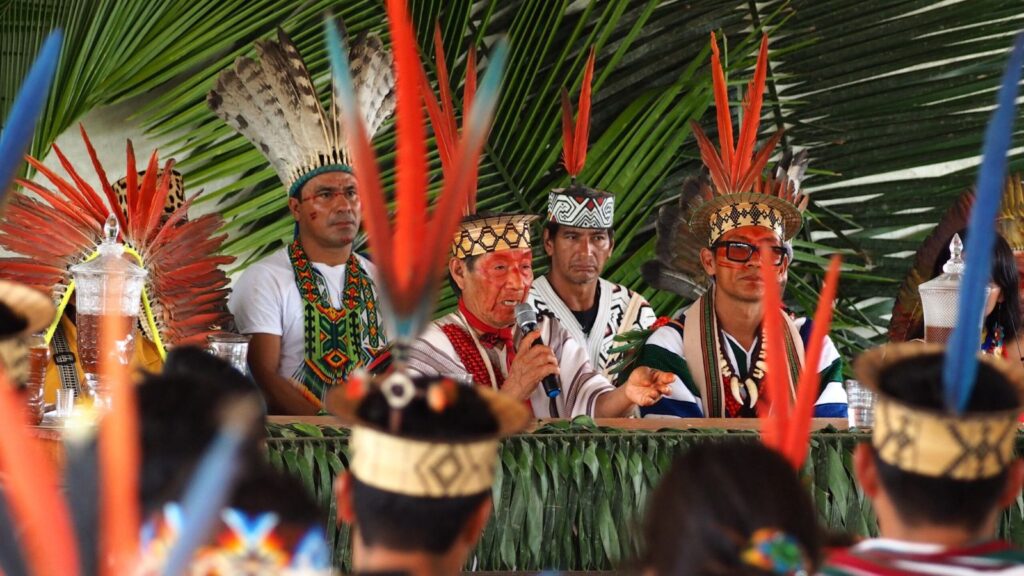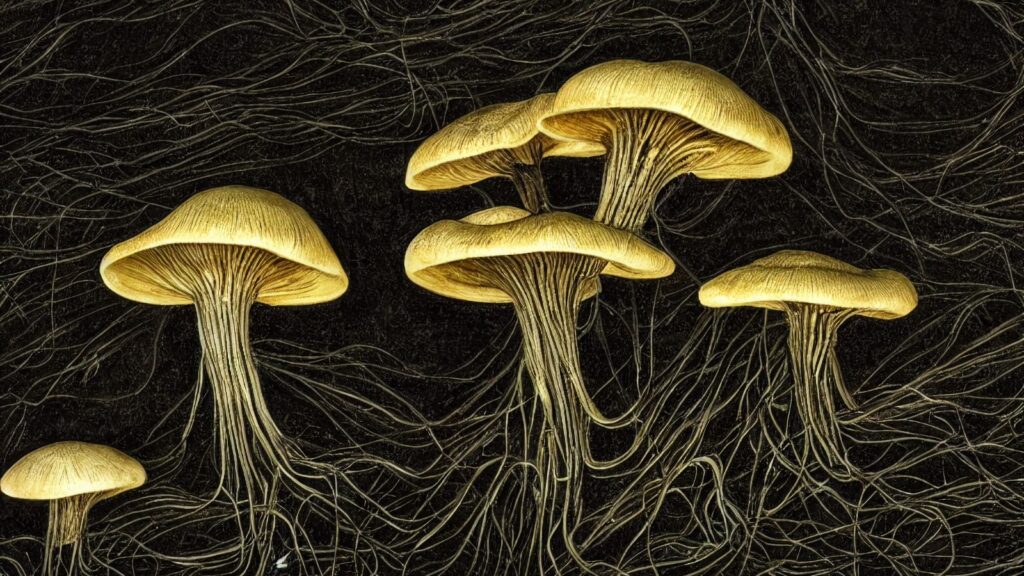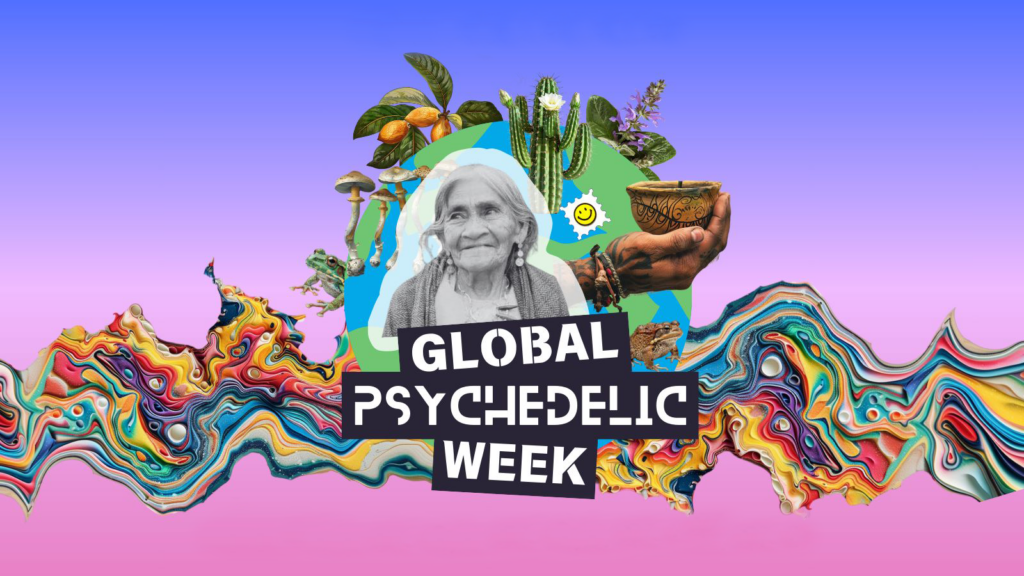Within all religions today there is a common core, an inner spiritual transmission going back to the dawn of human consciousness, to a time when religion was not necessary.
The original purpose of religion was to bring sacredness to life. Imagine a time (whether prehistorical or transhistorical) when human beings lived moment-to-moment in the presence of the sacred. Religion was unnecessary. There was no separation between spirituality and life, no distinction between the sacred and the mundane, no division of the Godly and the worldly. When we lost the ongoing and immediate sense of sacredness, then we needed religion to bring us back to it. "Religion," after all, means "that which renews our connection."
No matter that modern religions have been distorted into a force for separation and not connection. If we look carefully within any one of them, we will find traces of the Original Religion, the religion borne from that immediate, experiential identity with the divine. Born from the divine, it also has the potential to bring us back to the divine.
I am afraid that when I use phrases like "bring us back to the divine" I am strengthening a separation that is actually an illusion. The Original Religion is not a program for attaining to a divinity separate from ourselves or the world of matter we inhabit. It arises from the felt experience that no such separation exists. To even use words like "divine" or "sacred" establishes them as separate categories of existence and widens the division.
We have a name for the Original Religion. We call it animism, and it is still practiced today by isolated groups of indigenous people. We usually define animism as the belief that all things have a spirit: including animals and plants, rocks and streams, the wind and the sky. Actually, this belief is a step away from the original animism, which is perhaps better termed "panentheism," a belief in the indwelling divinity of all things. Panentheism says not that all things have a spirit; it is that all things are spirit. Spirit is not a distinct element that can be separated out from the being itself. The entire universe, and everything in it, is irreducibly sacred. Everything that exists, even two apparently identical drops of water, is unique, special, and sacred.
The panentheist thus lives in a constant state of reverence. Each action takes on a sacred significance. Each word is a prayer. Each event is divinely arranged, a communication from the All to a temporarily separate piece of it, the self.
The detachment from this way of being began with the earliest rudiments of human separation from nature: symbolic culture and domestication. When we try to encompass the infinity of the world within a finitude of labels, we distance ourselves from its immediacy and uniqueness. As the author of the Biblical Genesis understood, to name is to objectify and therefore to own. Domestication of plants and animals, similarly, risks converting them from coequal beings sacred in their own right into chattel, subordinate to human purposes.
This process was well underway in the Mesolithic if not before, but human beings still lived in harmony with nature because they had beliefs, stories, and rituals to reconnect them to the truth of the irreducible sacredness of all beings. Shamans were the original priests, the caretakers of this sacred knowledge, which they recognized is indispensable for human beings' survival. In those days, we understood the necessity of religion – renewing or remembering our connectedness. It is necessary because it is true, and no being can live very long or very well outside of truth.
Traces of the original religion survive within the esoteric traditions of modern religions, embodied in teachings like, "God is everywhere," "God is in all things," or "Everything happens for a divine purpose." The experience of God's constant presence is essentially the experience of the Original Religion. The mystics tell us that it is a Presence so close and so intimate that the self is submerged in it. The Presence suffuses all life, each moment of it, and it shines forth from every being we encounter. We have the sense of living in a wholly divine world, a holy world. And because the same Presence shines forth from all, our customary sense of division falls away, and we have the feeling that you and I are really the same being looking at itself through different eyes.
This is actually very easy to experience, at least for a split second. Look someone in the eye, and pay attention for an instant of recognition and union. It is so intensely intimate that we usually cannot stand it, so we shift our eyes away or shift our mind away, and forget that moment before we realize it has happened.
I think the original motivating intent of religion is to seize and expand such moments until they widen to encompass all of life. Even the attenuated rituals of modern life have something of this power to evoke the presence of the sacred, which we can then recognize was there all along, immanent and waiting.
Any religion can connect us to that presence, even an atheistic religion such as Buddhism. After all, if God is in everything and everyone, and not external to everything and everyone, what does it really mean to say God exists or does not exist? Buddhism speaks of interconnectedness or interdependency, and we typically understand that to mean a kind of relationship among separate subjects. The true teaching goes much deeper. It says that our very existence is woven out of relationships, that we are our relationships and nothing else. Inter-existence would be a word for it. And so karma is not an externally imposed punishment for doing ill to a separate "other" being; it is simply the direct consequence of all that we do, because the other is not in fact other.
In Western religion we can apply the same understanding to the Golden Rule. Perhaps when Jesus said, "Do unto others as you would have them do unto you," he wasn't prescribing a moral rule. He was simply stating what was, from his perspective, an obvious truth: As you do unto others, so you are in fact doing unto yourself. This is obvious from the felt perspective of nonseparation.
Every action is significant, every word deserves mindfulness. God sees everything. There are not some words and actions that don't matter and others that do. Everything matters. Everything is sacred. Nothing is left behind in the cold dead world of the mundane.
Does that mean that our sacred objects, our times of meditation and prayer, our rituals and observances have no purpose? No. Their purpose is to remind us of the truth. The purpose of a holy object is not to say, "This object is holy and others are not." The purpose of a holy object is to remind us of the holiness of all objects. The purpose of a ritual is to remind us of the sacredness of all action. The purpose of a prayer is to remind us of the sacredness of all speech. And, when we see our holy men or women as divine, it is to remind us of our own divinity and the divinity of all.
Too often the teachings of our great spiritual leaders have been perverted, so that holiness has become something outside ourselves. When that happens, we naturally trust external authorities in most matters, and lose the confidence and ability to be the creators of our own lives. Today, more and more people are returning to the truth: that we are divine beings living among other divine beings in a world that is itself, in its parts and in its entirety, wholly divine.
Whether conscious or not, it is this realization that ultimately motivates the environmental movement, the peace movement, the justice movement, and so many other areas of activism. None of these make sense in a world of force and reason, where more for you is less for me. Why should I care about the fate of other beings? As long as I can insulate myself from the blowback, why not just maximize my own security? Arguments for justice or the environment that attempt to appeal to rational self-interest ("think of all the medicines we could derive from rainforest plants") are never compelling. They do not compel others to change, as forty years of failed environmentalism demonstrates. Nor do they compel meaningful changes from within. We cannot scare ourselves into virtue.
That is why the panentheistic revival in all its forms is key to the transformation of the planet. Underneath all the New Age expropriation of the trappings of indigenous spirituality and shamanism lies a yearning to return to the living realization of the indwelling divinity of all things. It is a way of seeing the world profoundly at odds with modern materialism's reduction of the universe into a pile of stuff: generic masses subject to arbitrary, purposeless forces. And it will engender profoundly different results. Can you imagine a science, a technology, an economy, a culture founded on reverence? That is the promise of the once and future Original Religion.
Artwork by Colin Purrington, used courtesy a Creative Commons license.














